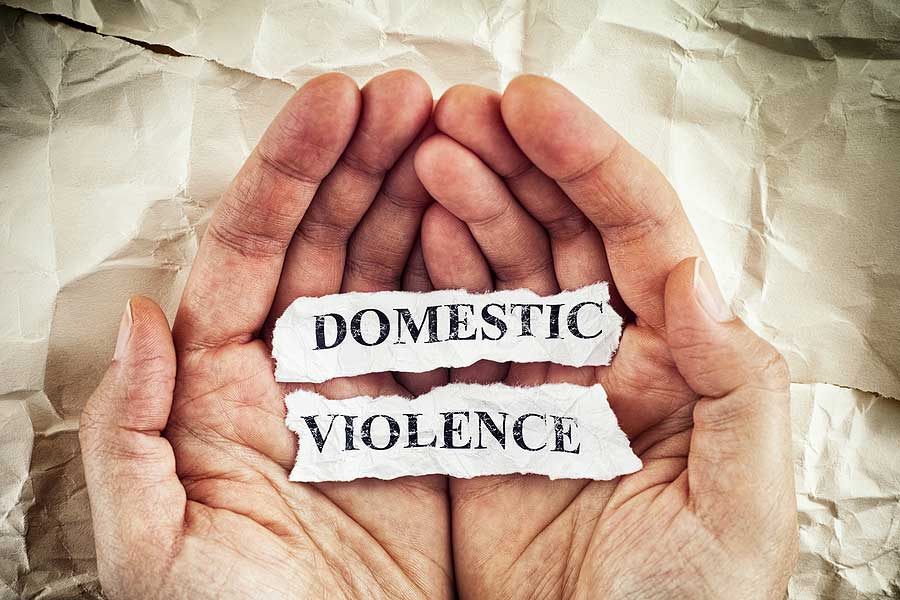Domestic violence charges in SC are a serious matter – it is a “hot button” political issue, no elected prosecutor wants to be seen as “soft on crime,” and they especially don’t want to be seen as “soft on domestic abusers.”
Because of this, you may find yourself arrested and charged when you did nothing wrong. You may also find yourself being prosecuted aggressively even when the alleged victim is asking the prosecutor to dismiss your case. You may discover that a prosecutor’s office has a “no drop” policy for domestic violence charges.
If you have been charged with domestic violence in SC, get an experienced criminal defense lawyer on your side immediately, take it seriously, and brace yourself for a fight.
In this article you will learn:
- the different types of domestic violence charges in SC,
- how domestic violence is defined in SC, and
- the potential penalties for the different degrees of domestic violence.
Domestic Violence Charges in SC
There are four “types” of domestic violence charges in SC – domestic violence of a high and aggravated nature (DVHAN), domestic violence first degree, domestic violence second degree, and domestic violence third degree.
The “degree” refers to the severity of the offense, which can be determined by different factors like the severity of the injuries that the alleged victim suffered, whether a weapon was used, and whether the defendant has prior convictions for domestic violence.
How is Domestic Violence Defined in SC?
SC Code Section 16-25-20 provides the elements that all domestic violence charges have in common:
- That you cause injury to a “household member,” or
- That you threaten to cause injury to a “household member” (and have the ability to follow through with the threat).
SC Code Section 16-25-10 defines a “household member” as a spouse, a former spouse, two people who have a child in common, or “a male and female” who live together or who used to live together (the S.C. Supreme Court has found that this last bit is unconstitutional as applied to same-sex couples, and that SC’s domestic violence laws also apply to LGBTQ couples who are married, formerly married, have a child in common, live together, or used to live together).
If the State proves that you caused injury to, or threatened to cause injury to, a household member, you may be found guilty of domestic violence. But what makes it first, second, or third degree?
What are the Different Degrees of Domestic Violence Charges in SC?
Although all domestic violence charges have the same basic elements, described above, the degree of domestic violence (and the potential penalty) is determined by additional factors that may include the severity of the alleged victim’s injuries or the number of prior convictions for domestic violence.
Domestic Violence of a High and Aggravated Nature (DVHAN)
A person can be convicted of the most serious domestic violence offense, DVHAN, if they cause injury to, or threaten to cause injury to, a household member and:
- They show “extreme indifference to the value of human life and great bodily injury to the victim results;
- Even if there are no injuries, if the person showed “extreme indifference to the value of human life” and a reasonable person would have feared “imminent great bodily injury or death;” or
- The person committed domestic violence first degree while they were violating a protective order.
What does “extreme indifference to the value of human life” mean? It is defined as:
- Using a deadly weapon;
- Choking the alleged victim (resulting in “stupor or loss of consciousness”);
- Committing domestic violence in front of a minor;
- Committing domestic violence against a pregnant person;
- Committing domestic violence during a “robbery, burglary, kidnapping, or theft;” or
- Preventing the alleged victim from calling or contacting police or EMS.
Domestic Violence First Degree
A person can be convicted of domestic violence first degree if they cause injury to, or threaten to cause injury to, a household member and:
- The domestic violence results in great bodily injury or “the act is accomplished by means likely to result in great bodily injury;”
- The person committed domestic violence second degree while violating a protective order;
- The person has two or more prior convictions for domestic violence within ten years;
- The person used a firearm during the offense; or
- While committing domestic violence second degree, the person:
- Committed domestic violence in front of a minor;
- Committed domestic violence against a pregnant person;
- Committed domestic violence during a “robbery, burglary, kidnapping, or theft;”
- Choked the alleged victim; or
- Prevented the alleged victim from calling or contacting police or EMS.
Domestic Violence Second Degree
A person can be convicted of domestic violence second degree if they cause injury to, or threaten to cause injury to, a household member and:
- The domestic violence results in moderate bodily injury or “the act is accomplished by means likely to result in moderate bodily injury;”
- The person committed domestic violence third degree while violating a protective order;
- The person has one prior conviction for domestic violence within ten years; or
- While committing domestic violence third degree, the person:.
- Committed domestic violence in front of a minor;
- Committed domestic violence against a pregnant person;
- Committed domestic violence during a “robbery, burglary, kidnapping, or theft;”
- Choked the alleged victim; or
- Prevented the alleged victim from calling or contacting police or EMS.
Domestic Violence Third Degree
A person can be convicted of domestic violence third degree if they meet the “basic” elements of domestic violence:
- That you cause injury to a “household member,” or
- That you threaten to cause injury to a “household member” (and have the ability to follow through with the threat).
Domestic violence third degree is usually heard in the magistrate (county) court or the municipal court (many counties have a consolidated “domestic violence court”), while second degree, first degree, and high and aggravated domestic violence cases are in the court of general sessions.
What are the Penalties for Domestic Violence in SC?
The potential penalties for domestic violence depend on the degree:
| Offense | Prison Sentence | Felony or Misdemeanor | Fine |
| DVHAN | Up to 20 years | Felony | N/A |
| DV 1st degree | Up to ten years | Felony | N/A |
| DV 2nd degree | Up to three years | Misdemeanor | $2500 – $5000 |
| DV 3rd degree | Up to 90 days | Misdemeanor | $1000 – $2500 |
Will I Lose My Right to Own a Firearm?
If you are convicted of any domestic violence offense, you will lose your right to own a firearm or to get a concealed weapon permit – possessing a firearm after you have been convicted of domestic violence is a separate criminal offense under both federal and SC state law.
Can I Get a Domestic Violence Conviction Expunged in SC?
You can get a first offense domestic violence 3rd degree conviction expunged in SC, but only after five years (most first offense misdemeanors in the magistrate or municipal court can be expunged after three years).
You can regain your right to own a firearm (and any other civil rights that have been affected by the conviction) if you receive a pardon.
Need help with your domestic violence charge?
Domestic violence charges are not taken lightly in South Carolina. If you are facing a DV charge, contact an experienced criminal defense attorney as soon as possible. You could be facing life altering jail time.
If you’re facing a domestic violence charge in South Carolina, immediately contact the attorneys at Templeton Mims & Ward so we can start building your defense.


